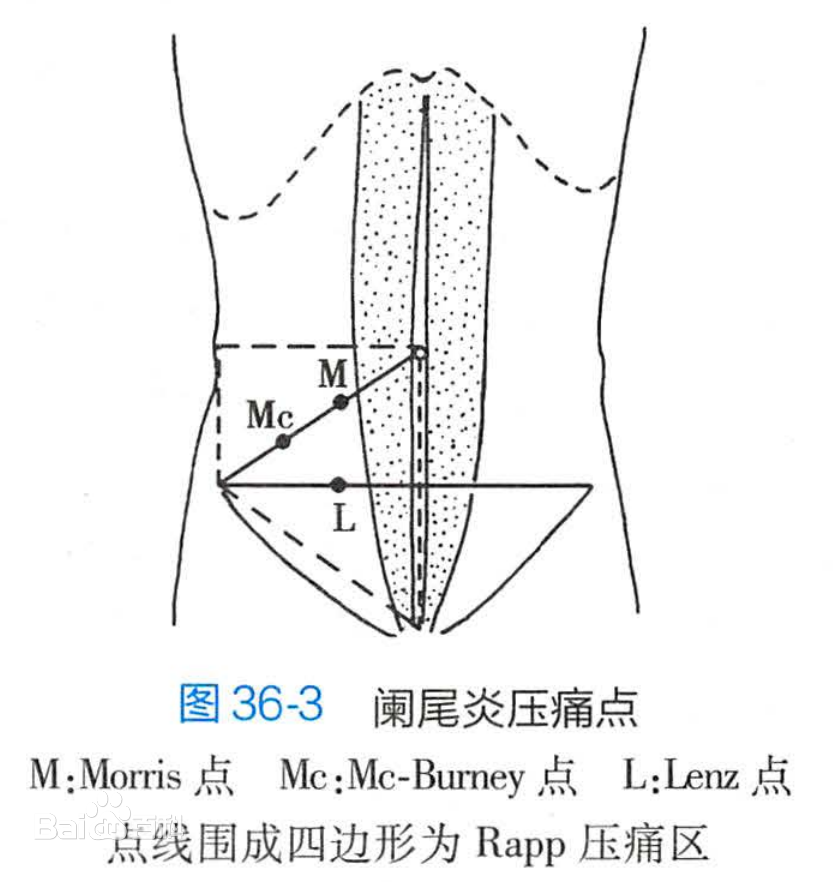In addition to "inflammation", what else can I do?
Author:Tadpole five -line spectrum Time:2022.09.25
The following article comes from the original point of reading, the author Duan Yunfeng
When I was in elementary school, I heard that a child did not come to school one day because I got acute appendicitis. The teacher talked lightly that the hospital cut the appendix.

A few days later, the children came to school, but I always looked at him subconsciously. I felt that he was different from the other children of our children. He was less than us. However, adults think that this is a good thing to "cut grass and remove the roots, and to be suffering from the trouble", saying that this child does not have to worry about getting appendicitis in the future.
The "small tail" appendix in the intestine is the thickest part of the intestine -a "small tail" extended from the cecum, which is almost long as the adult's little fingers. It is a worm -like organs. (Slap) protruding outward.

Standard of appendix schematic map Source: Baidu Encyclopedia
This "small tail" is hollow and connects directly with the intestine. Once this organs are inflamed, it can cause abdominal pain, which will cause people to be unwilling. It is said that the level of pain is second only to having children. Such a small organs can often cause inflammation, and almost one of each of them has appendicitis. Acute appendicitis is almost the most common in surgical acute abdomen, and can account for 10%to 15%of general surgery.
There is no good way for doctors to encounter acute appendicitis. The most direct way is to remove the appendix. Although resection can solve pain, the mortality rate of acute appendicitis is still 0.1%to 0.5%. According to statistics, in 2013, a total of more than 70,000 people in the world were killed. In view of such a high proportion of onset and the useless concept of appendix, people regard the "removed appendix when children are born" as representative cases of advanced medical care in developed countries. Many parents, even in some countries, in order to avoid future diseases, "cut grass and remove" when the child is born!
Not useless organs
Every organs of the human body have their effects, but we don't know enough.
In the animal world, the appendix is the "treasure house" of the bacteria required for herbivore reserves to decompose the plants they eat. According to the ancestor of evolution, Darwin inferred that the appendix in the human body may be degraded products for human ancestors that used to digest high fiber plants such as leaf. However, this is just guessing. For omnivorous animals such as today's human beings, the role of appendix is still unclear. Even if it is removed, it will not affect human survival. Therefore, for a long time, people think that the appendix has no any any of the appendix. A useless organs.

Source of the schematic diagram of appendicitis: Baidu Encyclopedia
With the development and progress of medical research, the concept of unsecured appendix has been subverted. This "small tail" extended from the cecum, the "dead end" in the large intestine is not only not useless organs, but also shoulder a very important mission.
The appendix is an immune organs with a large amount of lymphatic tissue in the interior and participates in the body's immunity. It can secrete a variety of active substances and various digestive enzymes, such as hormones that promote intestinal peristalsis and hormones related to growth.
The lymphatic tissue began to appear after birth, reached its peak at the age of 12 to 20, and then gradually decreased, and gradually disappeared after the age of 55 to 65. However, in recent years, more and more research results have revealed that the function of appendix is closely related to the rich and huge number of symbiotic microorganisms in the intestines in the body.
Bacterial "treasure house"
Studies of the University of Duke in the United States found that a large number of bacteria that are beneficial to the human intestine were stored in the appendix. When a person is disordered in the intestine due to illness or other reasons, the appendix will contribute these bacteria to help the intestinal tract reshape the healthy bacteria system and maintain the balance of the intestinal microorganism.
The appendix is like making a safe "backup disk" for the intestinal flora. It can supplement the beneficial bacteria in the intestinal system that is deleted when the illness is supplemented at a critical moment, reducing the damage caused by the pathogenic bacteria in the human body. A joint study conducted by Australia and France further proves this: appendix produces a special type of immune cells -inherent lymphocytes. This cell is a series of immune effects cells formed in the long -term evolution of organisms. It can quickly respond to the invasive pathogen, produce non -specific anti -infection immunity, and play a very important role in protecting low bacterial infections to protect low immunity.
Inherent lymphocytes help the appendix reserve the beneficial bacteria to maintain the balance of the internal flora in the human body. When human gastrointestinal infections or even food poisoning, the balance of beneficial bacteria in the human body can play a good resistance to the germs of virus.
An experimental result of the Takeda Jie team of the Department of Medicine, Osaka University in Japan provides strong evidence for "the appendix provides immune cells to the intestinal tract, and regulates the balance of intestinal flora". Ig A -positive cells (a kind of immune cells, which produces Ig A antibodies that produce bacterial reproduction in the body), found that the immune cells in the rats that removed the appendix were reduced by half, and the bacterial balance in the intestine was also disrupted. This proves that the appendix is an organ that produces IG A -positive cells. After the cells are generated, they will move to the large intestine and small intestine. The IG A antibody produced by these cells can be combined with a specific intestinal bacteria to suppress its reproduction, so as to regulate the intestinal intestines The purpose of bacterial balance.
Researchers at the Central and Western University of Arizona in the United States conducted a widespread follow -up history of the evolution of the appendix when they conducted in -depth research on the cecums of 533 different mammals. As a result, once the animal evolved the appendix, it would never be in these anymores. The descendants of animals disappear. At the same time, it was found that the number of lymphatic tissues owned in the lower abdomen cecum in the lower abdomen cecum is more conducive to the growth of beneficial bacteria in the intestinal tract. The appendix is an important organ to control the balance of intestinal flora, which has been confirmed. The balance of the flora inside the appendix also affects the health of the appendix. Studies have found that the increase in Fusobacteria in the appendix can cause the onset of acute appendicitis. The appendix and symbiotic microorganisms are supported and accompanied by each other, and the heavy responsibility of maintaining the balance of intestinal flora together.
We may foresee that in the near future, with the further deepening of research, this organs that have been ignored by humans will become a hot spot for intestinal microorganisms. Although there are still some detection difficulties now!
- END -
Electricity is full of apricot Shazhou

These 20 days of the summer solstice to the ambush are the days when it belongs to...
Fire safety entering the night market to protect the city "fireworks"

Fireworks on earth, the most caressing the hearts of the mortal, since the autumn,...